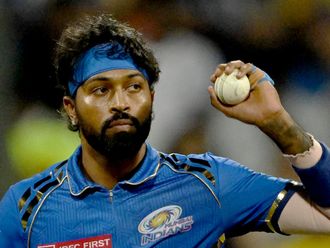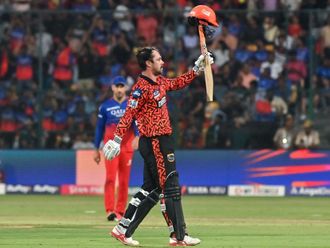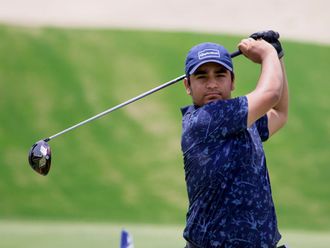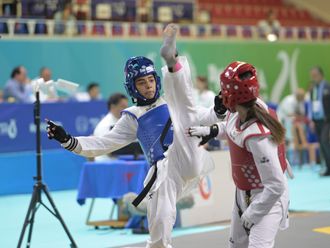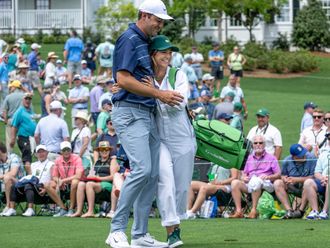Even after he went more than four years without a Grand Slam title, even after the first operation of his career led to the first prolonged absence of his career, even after a slide down to 17th in the rankings, Roger Federer never wavered.
Which, when you think about it, makes quite a bit of sense when you consider that he is, after all, Roger Federer.
And look at where he is now. As of Monday, Federer will return to No. 1, a spot many view as his rightful place in the tennis hierarchy not merely now but in the sport’s history. In the process, he will add a few more superlatives to a lengthy list, most notably: He becomes, at age 36, the oldest man or woman to top computerized rankings.
Older than the previously oldest man, Andre Agassi, who was No. 1 at 33. Older than the oldest woman to hold that place in the WTA standings, Serena Williams, who was most recently there at 35.
Two other noteworthy achievements by Federer: The 14-plus years that have passed since he first ascended to No. 1 is also the most from initial to most recent stay there, and the five-plus years between stints atop the rankings is the longest such gap.
Shortly after Friday turned to Saturday in Rotterdam, Netherlands, where Federer assured himself of rising from No. 2 and surpassing Rafael Nadal in the rankings by reaching the semifinals at an indoor tournament, he spoke via telephone to a couple of reporters. He was asked what one factor was most essential to this career renaissance.
“Maybe my positivity, you know,” Federer replied. “And my belief that I could get back to (No. 1) and I could get back to winning ways. Even in the difficult moments, I was upbeat, I must say.”
He didn’t do it alone, of course, and made sure to make reference to the group around him, which includes coaches Severin Luthi and Ivan Ljubicic, and physical therapist Pierre Paganini.
“I did need the final push by my team. That’s why I always talk about how important they are, because without them, honestly, there’s no chance I could have done this. And if the majority, or one person, would have told me, ‘Look, I think your days are done,’ then I think also it would be a different situation today,” he said. “But everybody kind of believed in me.”
And why not?
Who’s really going to question Federer?
On the other hand, plenty of folks did.
Especially as he went from late in 2012 to the end of 2016 without winning a Grand Slam title. He took a six-month sabbatical over the last half of 2016 to allow his surgically repaired left knee to heal fully. The arthroscopic procedure Federer had, repairing torn cartilage, came after he said he was injured while preparing a bath for his twin daughters.
He also had back issues in 2016 and missed the French Open that year to end his record 65-appearance streak at major tournaments, before also sitting out the Rio de Janeiro Olympics and U.S. Open. Federer went without a title in 2016 and dropped out of the top 10 in the rankings for the first time in more than a decade.
The Swiss star came back at the start of 2017, his ranking down to No. 17 in January, and promptly won the Australian Open for his 18th major championship. Then came his 19th overall at Wimbledon, his record eighth at the All England Club, in July. And he added No. 20 at last month’s Australian Open.
While his principal - and younger - rivals Nadal, Novak Djokovic and Andy Murray all spent time at No. 1 in recent seasons, Federer always trusted he could reassert himself. Lately, that trio all missed chunks of time because of various health issues. Murray is currently sidelined after having hip surgery, while Djokovic had a procedure on his right elbow.
And Federer? Just keeps going.
He mentioned words like resilience and fighting in describing the traits that got him back to where he used to be and now is again.
He spoke of “trying to reinvent myself again to some extent.”
“But,” he concluded, “I think it all comes with my positivity and the enjoyment I take from the game.”
Federer was asked by another reporter who would win a match if the guy who first made it No. 1 at age 22 played against the guy who now is again No. 1 at 36.
He laughed.
And then he answered that the Federer of today would come out on top.
“I just feel like tennis has gotten faster, you know? We have less time. We can hit harder. I’ve done it for a longer period of time now, to hit through the ball off both wings harder. I serve more consistently well,” Federer said. “So I feel like this guy would beat the other guy right now. That’s who I pick.”


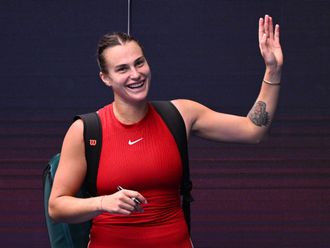
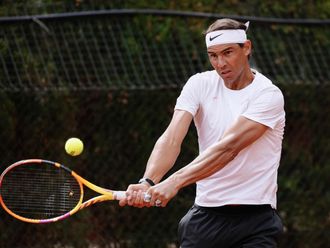
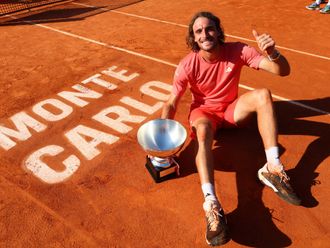
![Copy of 920889-01-02 [1]-1713093032070](https://imagevars.gulfnews.com/2024/04/14/Copy-of-920889-01-02--1--1713093032070_18edc4d3895_small.jpg)
